US Sets Up New Naval Task Force To Patrol Waters Off Yemen
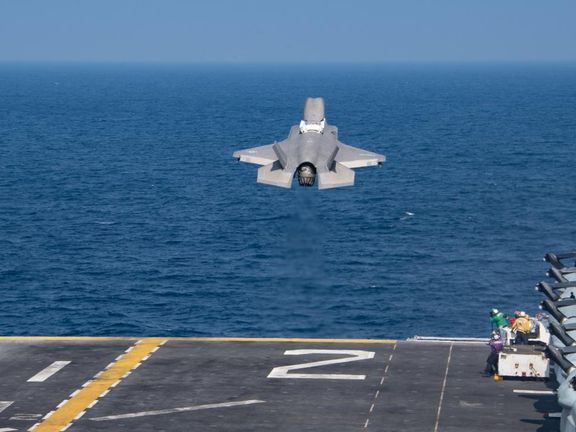
The US Navy says it is setting up a new multinational task force to patrol the waters around Yemen following attacks attributed to Iran-backed Houthi rebels.

The US Navy says it is setting up a new multinational task force to patrol the waters around Yemen following attacks attributed to Iran-backed Houthi rebels.
Vice Admiral Brad Cooper, who oversees the Navy’s 5th Fleet based in Bahrain, said on Wednesday that the task force would ensure a force presence and deterrent posture in the “strategically important” Red Sea, Bab al-Mandab Strait and Gulf of Aden.
The force will be commissioned Sunday to target arms smuggling as well as trafficking of people and drugs, Cooper told reporters.
The announcement comes as Washington is seeking to reassure Saudi Arabia and the United Arab Emirates by providing additional military support following a series of missile and drone attacks on the Persian Gulf nations in recent months. Vessels in waters around Yemen are crucial for global trade, including oil supplies, and vessels have in the past been targeted by the Houthis and other forces.
According to Cooper, the new task force will impact the Yemeni Shia rebels’ ability to obtain the weaponry needed for such attacks.
Iran has long been accused of smuggling weapons to the Houthis, a charge Tehran denies.
The new naval task force will consist of up to eight vessels and will be part of the 34-nation Combined Maritime Forces, which has three other task forces in nearby waters targeting smuggling and piracy.
Its launch comes amid a two-month truce in the nearly seven-year Yemen war that has killed tens of thousands of people and displaced millions more.
With reporting by Reuters

The daughter of a conservationist jailed in Iran began a protest Wednesday at Britain’s foreign office demanding action to free her father.
Roxanne Tahbaz says the United Kingdom government has betrayed Morad Tahbaz, 66, who has Iranian, British, and American citizenship. She alleges officials misled her family over the chances of his release and were not taking further steps to secure his return to Britain.
Roxanne Tahbaz pointed out it was a month since Iran released Nazanin Zaghari-Ratcliffe, a manager for Thomson Reuters Foundation, and Anoosheh Ashuri, a retired engineer, after the UK paid a four-decade-old debt to Iran of £400 million ($530 million). “My father’s still sitting in prison and my mother’s still on a travel ban," Tahbaz told reporters outside the Foreign Office in London Wednesday.
Morad Tahbaz, who is serving a ten-year sentence on espionage charges after arrest with other environmentalists in 2018, was released from prison on furlough on March 16 after Britain paid the debt, but he was not allowed to leave the country.
Unlike Zaghari-Ratcliffe and Ashuri, Morad Tahbaz is also an American citizen, which may complicate the case.
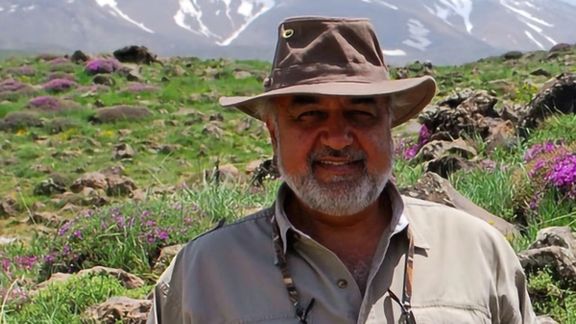
Cheap Exchange
In a commentary Tuesday entitled "Why Morad Tahbaz Shouldn't Be Exchanged for Cheap", Fars news agency affiliated with Iran's Revolutionary Guards (IRGC) said recent reports of unfreezing of $7b of Iran's assets in South Korea may be related to the possible release of American nationals detained by Iran including Tahbaz. State-controlled media, including the official IRNA news agency have periodically claimed that a deal has been finalized to release the funds.
Fars linked the Tahbaz case to those of Siamak and Bagher Namazi, dual US-Iran citizens jailed in 2015 and 2017 respectively. "It seems that the price of these two individuals and the third person should be much higher than $7 billion," Fars wrote, adding that Iranians held in the US should also be freed even if the US agreed with the release of the $7 billion.
Fars repeated claims by the IRGC intelligence organization that Tahbaz was connected to American, Israeli and British secret services operating in Iran under the guise of environmental activities to cause "damage to the country in nuclear and military areas." In other cases Iran has swapped detained foreigners for Iranians held in the US for sanctions violations, while Iran has also talked of links between prisoner exchanges and progress in talks to revive the 2015 Iran nuclear deal.
Leverage
International human rights organizations and families of dual nationals held by Iran say their detention amounts to hostage-taking to gain leverage.
While the British and Iranian governments have denied any connection between the cases of the British nationals and London’s debt to Iran, Roxanne Tahbaz alleged that British authorities had led her family to believe that her father would be part of a deal and would leave Iran alongside Zaghari-Ratcliffe and Ashuri. Her father, she said, felt abandoned by the British authorities.
A Foreign Office spokesperson said Wednesday that Iran had failed to honor a promise to release Morad on indefinite furlough. “Continuing his horrendous ordeal sends a clear message to the international community that Iran does not honor its commitments,” the spokesperson said. “We continue to urge the Iranian authorities at every opportunity to release him immediately.”
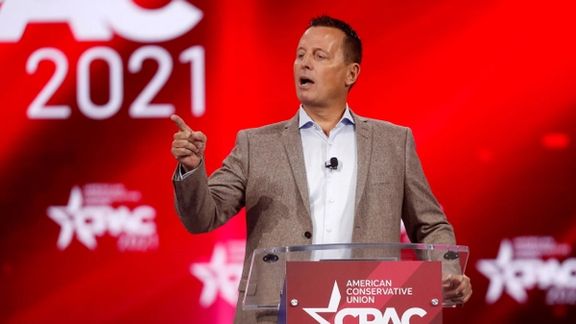
Former US ambassador to Germany, Richard Grenell says he has been sanctioned by Iran for his human rights campaigns, particularly those for the LGBTQ community.
Grenell, who was also a White House Advisor, told Iran International’s Fardad Farahzad on Wednesday that he is not surprised by the Iranian regime’s move, adding that “we know that they deny systemically, every single day, basic human rights for women, for gays and lesbians, for the general population”.
Grenell, a strong supporter of former president Donald Trump, who also tweeted similar remarks in Persian earlier in the day, said, “I’m not surprised that they see my work in Farsi and Arabic languages to push human rights as a threat. I am absolutely not surprised that they don’t want me to be speaking about these issues and try to silence me.”
Insisting that the Tehran does not sanction Democrats because they “are darting towards the Iranian regime,” he said, and added, “The Biden administration is filled with total hypocrisy. They pretend to talk about human rights, but it doesn't come into their calculus… they're talking about giving money to the Iranian regime, they dropped the sanctions on the Iranian regime.”
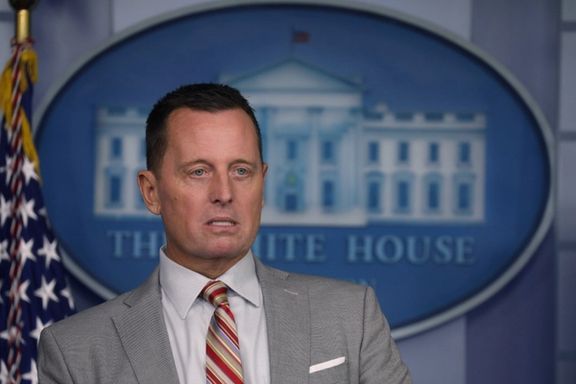
Grenell, who also served as the acting director of national intelligence in the Trump administration, found himself on Iran's list of sanctioned individuals this week, joined by 24 other former Trump administration officials who were officially sanctioned due to what Iran called “terrorist activity and human rights violations".
“I would just note that on the Iranians' list of sanctions, of who they're concerned about, who they want to silence, there are no Democrats, there are no progressives on that list. They're just Republicans” he added.
He said, “I find it as a point of pride when your enemies publicly say that you are a threat to them it just means that you are really doing good work”.
He defended his efforts for the rights of the LGBTQ community, saying that “I believe that if you are an international diplomat and you are working to criminalize homosexuality, then you should not get a visa. Your kids should not get a visa to come to the US. There needs to be consequences for individuals who criminalize homosexuality and push that issue in their country”.
Grenell added that the Iranian regime is terrified of the right-wing LGBTQ campaigns in the Middle East, noting that there is no such fear from the activities of left-wing organizations
There is no fear of the activities of Hollywood types and Disney-type left-wing organizations, he said. “I think the Iranian regime is very pleased that the gay left has never taken this fight to Iran or to the Middle East. I think it’s shocking that the gay left will continue partnering with the Palestinian Authority knowing that the gay pride parade in Tel Aviv is literally a beacon of hope in the entire Middle East,” the Republican campaigner said.
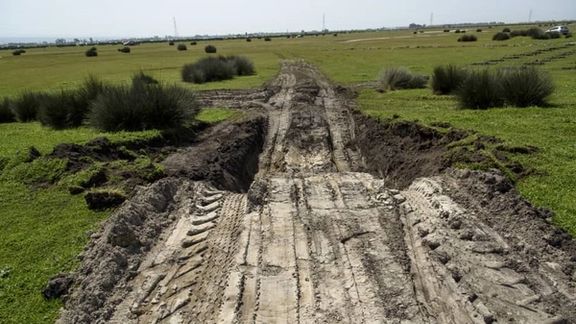
Some work on a petrochemical project in northern Iran has continued despite orders from the President and Supreme Court to halt construction, opponents claim.
Campaigners against the 800-trillion-rial ($3 billion) scheme posted videos on social media Tuesday evening claiming to show welding for fencing and other preparations for building the Miankaleh petrochemical plant continuing during hours of darkness after the Supreme Court ordered Tuesday a halt in construction pending an environmental assessment.
The Supreme Court's order to halt the project followed a social-media campaign and a petition to the oil minister and chief of the Department of Environment. Activists say the plant will have adverse environmental impacts on the coastal region. Celebrities, including actress Hedieh Tehrani, have backed the campaign, posting photos and banners on their social media pages.
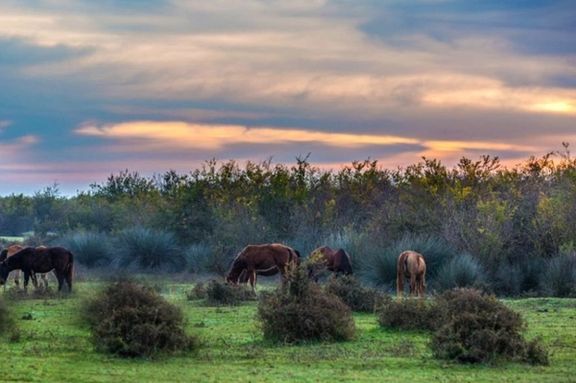
The site is only a few kilometers from Miankaleh Peninsula in the east of the coastal region of Mazandaran, about 45km from Behshahr. The nearly 70,000-hectare peninsula, which separates the Gorgan Bay from the Caspian Sea, is home to a variety of birds and reptiles, and was designated as an international Unesco biosphere reserve in 1976.
When he inaugurated the project March 11, Interior Minister Ahmad Vahidi said it met environmental requirements, but the following day Ali Salajegjeh, head of the Environment Department, said the department had not authorized the plant’s construction.
75,000 jobs
Salajegheh has said some lawmakers support the plant on the grounds it can create 75,000 jobs. But the lawmakers have not substantiated such a high number. Usually a few hundred people work in a petrochemical plant. He has also argued that wildlife in the Miankaleh lagoon would be threatened by the project’s requirement for water and that the plant would cause pollution.
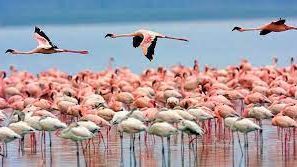
The project is owned by Amirabad-e Mazandaran Limited, which according to the official gazette was established less than a year ago by companies outside petrochemicals. Within an usually fast few months, the oil ministry agreed to provide natural gas for the project, which reportedly will produce 400,000 tons of propylene a year.
The official news agency, IRNA, reported Sunday that President Ebrahim Raisi had ordered the project scrapped. Government Spokesman Ali Bahadori-Jahromi said April 5 that the project would not go ahead before being endorsed by the Department of Environment.
Salajegheh has pledged not to surrender to any pressures to endorse the project and the official news agency, IRNA, reported Sunday that President Ebrahim Raisi had ordered the project to be scrapped. Government Spokesman Ali Bahadori-Jahromi also said on April 5 that the project would not be implemented before being endorsed by the Department of Environment.
Critics suspect the company that owns the project of having support from centers of power who are so influential that they can even bypass the President's orders.
"The halt in the construction of Miankaleh petrochemical plant is good news, but experience proves that the halt will be temporary, and contractors will return with even more destructive methods,” Javad Heydarian, a journalist focused on environmental issues tweeted Tuesday. “Those who implement such projects have so much money, power, and influence that they don't [have to] abide by any laws."
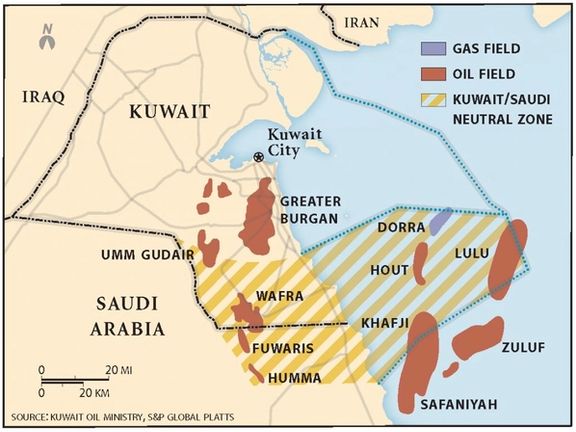
Saudi Arabia and Kuwait Wednesday invited Iran to negotiate to determine the eastern limit of an energy-rich, offshore area, the Saudi state-news agency SPA said.
The two Arab countries announced in March that they will develop the Durra natural gas field, which is adjacent to Iran’s offshore Arash field at the tip of the Persian Gulf. At the time, the Kuwaiti government said that Durra is "entirely a Kuwaiti and Saudi field" and that the issue to be settled with Iran is just the demarcation of the area offshore a neutral zone shared by Kuwait and Saudi Arabia lying adjacent to Iran's maritime zone.
Iran denounced the Kuwaiti announcement on March 26, saying a joint Saudi-Kuwaiti project would be illegal without Iran’s participation.
Foreign ministry spokesman Saeed Khatibzadeh said, "The Arash/Al-Durra gas field is a joint field between Iran, Kuwait and Saudi Arabia. Parts of it are located in areas between Iran and Kuwait whose water boundaries have not been defined. The Islamic Republic of Iran also reserves the right to exploit the gas field".
The two Persian Gulf Arab monarchies reaffirmed their right to develop the Durra natural gas field, located in this area, the Saudi Press Agency added, citing a Saudi foreign ministry statement.
Saudi Arabia and Kuwait expect to produce one billion standard cubic feet per day of gas and 84,000 barrels per day of condensates.
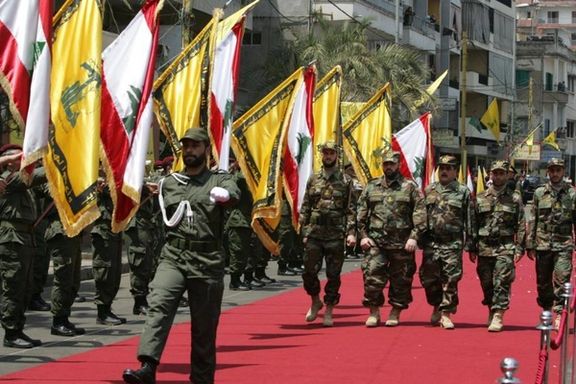
Iran has provided cyber technology to Lebanese Hezbollah and helped group build its own counterintelligence cyber unit, according to The National Interest.
The Washington-based magazine reported on Monday that Iran has helped Hezbollah become “the most sophisticated and influential Middle Eastern terrorist organization in cyberspace after the collapse of the Islamic State caliphate”.
The report, titled “How Iran Built Hezbollah Into a Top Cyber Power”, said the country sees the militants as a “key part” of its cyber program.
The first reason why Iran is “increasingly utilizing Hezbollah as a cyber proxy” is because “it grants Tehran a degree of deniability”, it said
“By training and enhancing the cyber forces of its Lebanese ally, foreign powers may not retaliate against Iranian targets after a Hezbollah-initiated cyber attack”, the article reads.
According to some reports, the Hezbollah cyber unit is likely based in Beirut's southern neighborhood of Dahieh and has computer equipment that is similar to Tehran's Sharif University.
The unit is said to work under the direction of the elite Quds Force of Iran's Islamic Revolution Guard Corps (IRGC), and is primarily tasked with gathering intelligence on Lebanese state institutions as well as conducting cyberattacks on strategic targets in the Persian Gulf states such as gas and oil companies.
According Western cyber security experts, a Hezbollah-affiliated cyber unit, known as Lebanese Cedar APT, launched attacks in January 2021 that lasted for more than a year on telecommunications companies and internet providers in the United States and many other countries.
In 2010, the Obama administration described Hezbollah as "the most technically-capable terrorist group in the world."